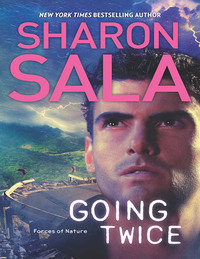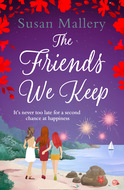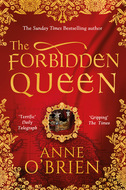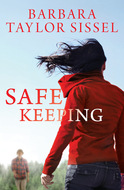Das Buch kann nicht als Datei heruntergeladen werden, kann aber in unserer App oder online auf der Website gelesen werden.
Buch lesen: "Going Twice"
New York Times bestselling author Sharon Sala enters the eye of the maelstrom as death and disaster stalk Tornado Alley—aided by an obsessive madman.
As bodies pile up in the wake of a storm—stripped, tortured and grimly posed—authorities must admit the unthinkable. The serial killer dubbed the Stormchaser has returned following a tornado and taken it upon himself to bring the death toll up to where he believes it belongs.
FBI investigator Wade Luckett is back on the case, assisted by an agent Wade knows professionally and personally: his ex-wife, Jo. Neither time nor the tragedy that tore them apart have blunted the ache Wade feels for brave, beautiful Jo. And though she tries to deny it, she feels the same. But the stirrings of renewed romance will have to wait until they catch a killer.
The Stormchaser has no intention of getting caught. He’s set his sights on a new victim. Jo can forget about the lifetime she dreams of spending with Wade. She’ll be lucky to see another day.
Praise for the novels of

“Vivid, gripping…this thriller keeps the pages turning.”
—Library Journal on Torn Apart
“Sala’s characters are vivid and engaging.”
—Publishers Weekly on Cut Throat
“Sharon Sala is not only a top romance novelist,
she is an inspiration for people everywhere
who wish to live their dreams.”
—John St. Augustine, host,
Power!Talk Radio WDBC-AM, Michigan
“Veteran romance writer Sala lives up to her reputation
with this well-crafted thriller.”
—Publishers Weekly on Remember Me
“A well-written, fast-paced ride.”
—Publishers Weekly on Nine Lives
“Perfect entertainment for those looking for
a suspense novel with emotional intensity.”
—Publishers Weekly on Out of the Dark
Going Twice
Sharon Sala
This book is about strength of character and strength of heart, something of which we are rarely aware. It’s not until life throws us a curve, testing our mettle as to how much it takes before we might break, that we even know it is there. But when the need arises and we tap into that strength, it is then that heroes and heroines are born. They are the survivors, but not in just the physical sense. They endure, then they persevere, until finally they prevail.
I dedicate this book to the quiet heroes and heroines who go about their lives without medals or awards, who take care of business and walk away knowing they did what they had to do to take care of the people they love. Their legacy is their reward.
Contents
Chapter One
Chapter Two
Chapter Three
Chapter Four
Chapter Five
Chapter Six
Chapter Seven
Chapter Eight
Chapter Nine
Chapter Ten
Chapter Eleven
Chapter Twelve
Chapter Thirteen
Chapter Fourteen
Chapter Fifteen
Chapter Sixteen
Chapter Seventeen
Chapter Eighteen
Epilogue
One
Washington, D.C.
Spring
It was the bird chirping outside the bedroom window that woke up Jolene Luckett, but her mood did not match the peppy sound. Even though it was her day off, it was going to take everything she had to get through it.
After a quick shower, she dug out her favorite pair of jeans and an old Washington Redskins T-shirt. It was a relief to wear tennis shoes rather than the leather half boots she often wore to work, but the soles made little squeaking noises on the hardwood floors as she headed for the kitchen. Yet another cheery sound that felt like an irritation.
A preprogrammed coffeepot had hot coffee waiting. She filled a to-go cup with the hazelnut-flavored brew, grabbed her purse and car keys, and headed out the door.
Next stop was the flower shop. The owner was just opening up, and her stomach rolled as she followed him inside. The smell reminded her of funerals.
“Give me a couple of minutes to get my register up and running,” the salesclerk said.
“I want to look around, so take your time,” Jo said.
She knew what she needed, but it was going to take her a few minutes to work up the nerve to pick it out and pay without breaking into tears.
Music began to play somewhere in the back as she moved toward a display of potted mums. Her grandmother had an entire flower bed of chrysanthemums on the east side of her house when Jolene was a girl. Seeing them made her remember a time when she still believed in happy-ever-afters. Now she knew different, and she also knew she couldn’t stare at plants all day. Not when she had another appointment to keep. As she moved down the length of the room, she caught sight of a table piled high with stuffed toys and immediately looked away. She wasn’t ready for that. Not yet.
The clerk was at the register now, whistling beneath his breath as he worked. She curled her fingers into fists and lifted her chin as if she was readying for battle.
Focus, Jo. Focus.
She walked to the other side of the room, toward the cooler holding large buckets of cut flowers waiting to be made into arrangements. She saw blue flowers, but they were not the kind she wanted, and she moved on to another display with smaller potted plants. There were colorful pansies with their happy faces, and delicate violets with their green velvet leaves. Then she saw the small pots with the tiny blue flowers, and her eyes filled with tears. Forget-me-nots. Perfect. She sorted through them for a bit and then chose the one with the most blooms.
To get to the register she had to pass by the display of stuffed animals again, but this time she stopped. It hurt her heart to look at them, but it hurt even more to choose one, knowing where it was going to wind up.
“Anything I can help you with?” the clerk asked.
Jo flinched. Some FBI agent she was. He’d walked up beside her and she hadn’t even heard him coming.
“No, thank you. I’m just about done.”
As he walked away, her gaze fell on a small fuzzy giraffe. The first time she’d chosen a toy she’d picked a little teddy bear. Last year she’d chosen a small green turtle. This time it would be the giraffe. She picked it up and headed for the register.
The man was talking to her as he rang up the purchases, but for the life of her she couldn’t remember a thing he’d said. She handed him her credit card and signed the slip he gave her.
“Would you like to attach a card to the flowers?” he asked.
“No, thank you,” she said again, then picked up her purchases and walked out the door.
Traffic was heavy as she drove toward North Capitol Street, but it was good to have something to concentrate on.
Her cell phone rang, but she wouldn’t look. Didn’t care—couldn’t care—when she was on a mission this important. By the time she neared her destination, she began moving into the proper lane so she could exit on a service road to get to the entrance.
Her heart was hammering so hard when she drove through the entrance to Prospect Hill Cemetery she felt faint. The first time she’d come here she hadn’t come alone. Wade had still been with her. But no more. She blinked back tears, refusing to admit most of that was her fault. It had been a subconscious reaction to the guilt she felt, pushing him away instead of letting him in to grieve with her.
She drove through the cemetery with a heavy heart, found a place to park at the foot of the hill, and got out with her flowers and the toy.
The sun was warm, but the breeze blowing on the back of her neck kept it from being uncomfortable. As sad as it was to have to come here, it was also a strangely beautiful, peaceful place. She saw an older couple a short distance away, and a woman sitting on a bench farther up the hill—reminders that grieving for the dead was a part of living.
When she finally reached her destination, the weight in her chest was so heavy it hurt to breathe. Wade had insisted on this plot. He’d said it was because little boys needed trees to climb. She knelt in front of the grave marker to brush away freshly cut grass and a couple of leaves. The stone was cold and hard, the opposite of what you would associate with a baby, but she finally reached out and traced the letters carved into the granite: Samuel Joe Luckett.
The Samuel was for his daddy, Samuel Wade.
The Joe was for her, his mother, Jolene.
They had planned to call him Sammy.
Jo’s hands were shaking as she put the flowers against the marker.
“Happy birthday, little guy. I brought some pretty flowers and a new toy. The flowers are called forget-me-nots. I never forget you, because you’re always in my heart, and the toy is called a giraffe. He has a long funny neck, doesn’t he? They have some real ones here in the zoo, but this one is about your size.”
Everything began to blur as her voice broke and the tears welled. “If I could take back what happened, I would do it in a heartbeat. I didn’t know going to work that day would hurt you or I wouldn’t have gone. I know it’s my fault you’re not here, and I’m sorry. I’m so, so sorry.”
Her cell phone rang again, and again she ignored it. She knew who it would be. Even though Wade surely hated her guts, he still called her every year on this day. She couldn’t talk to him now. She didn’t want him to hear her cry.
* * *
For the past three years Wade Luckett’s plan had been to fill up his days with so much work that he wouldn’t have to think about what he’d lost. But every year, when this day came around he stepped out of denial, and made himself face what had been the worst day of his life.
He hadn’t slept worth a damn last night and had dressed for work early. The thought of food made him sick, which was a sure sign something was horribly wrong. He drank a cup of coffee while watching the early morning news, and fielded a couple of texts from the office, answered a half-dozen emails, all the while watching the time.
They opened the gates to the cemetery at sunup, but he wouldn’t be the first one there for fear of running into his ex-wife. He still didn’t understand how losing their baby had turned her against him. He wasn’t the one who shot her, and he damn sure wasn’t the one who walked away after it was over. Still, what was past was past. If he could have, he would have gladly died in Sammy’s place, but nobody had given him the option.
For whatever reason, life had kicked them both in the teeth, and today was just the reminder. As soon as he thought enough time had passed, he began gathering up his things. His car keys were in a bowl on the table, and the little yellow Hot Wheels truck he’d picked out at the store last night was right beside them. His hands were shaking when he picked up the truck and dropped it in his pocket. Moments later he was out the door.
He drove to the cemetery with a painful knot in his chest, and the closer he got, the greater the pain became. He took a deep breath as he drove through the entrance, then kept driving. When he saw a car in the distance and the tall, dark-haired woman kneeling at the grave, his eyes filled with tears.
Ah, damn it, Jolene. You still break my heart.
Unwilling to intrude on her moment, he parked, took the little yellow truck out of his pocket and held it like a talisman against welling pain, but the longer he sat there, the worse the pain became.
Without thinking, he reached for his phone and called her, just as he did on this day every year. He saw her react as the phone began to ring and knew before she turned around that she wasn’t going to answer. He watched as she left the grave and began walking back to her car.
Her shoulders were too damn straight.
Her steps were uneven.
He knew she was crying.
After she was gone, he drove up and parked beneath the tree near the grave and walked over. When he saw the yellow giraffe, the pain in his chest bloomed. He looked down at the yellow truck he was carrying and shook his head. They’d always been on the same page with everything.
Then he focused on the name and smiled.
“Hey, Sammy, it’s me, Daddy. I see Mama’s already been here. That’s a great giraffe you have there. I brought you a birthday present, too. You’re three years old today, and I brought you your first Hot Wheels. This one is a little yellow truck like the ones I used to play with when I was three.”
He dropped to his knees, set the truck on the marker next to the giraffe, and then laid the palm of his hand on the engraved name.
“This is the closest I can get to you here, baby boy, but I carry you in my heart.”
Then he got up and walked away, his shoulders a little too straight, his steps staggering. He couldn’t see for the tears in his eyes.
Houston, Texas
Hershel Inman hardly remembered the man he’d been before his wife, Louise, died in the aftermath of Hurricane Katrina, and could barely cope with what he’d become, since Louise wouldn’t let him forget it.
She alternated days of crying and begging him to stop killing with preaching at him for his sins. If he didn’t love her so much, and if she wasn’t already dead, he would gladly have strangled her just to make her shut up.
His mission had begun as payback to the authorities who’d come too late to save her, and to God for picking and choosing who lived and who died. Then the FBI showed up, and his power grew as he continued to kill and escape detection. He had been invincible—until he’d made that first mistake and missed a survivor who’d witnessed what he’d done. After that, everything began to unwind. He’d tried to silence her, but the FBI kept interfering, and then, to make matters worse, she married the agent who’d saved her.
Their lives got better and his got worse, ending with the explosion in his getaway boat that nearly killed him. He’d dropped off the radar to let his burns heal and thought about disappearing altogether. But when he closed his eyes at night, all he saw was Louise’s face and the fear in her eyes as the water rose higher and higher around them, so he stayed in the wind, waiting for a chance to strike back.
Spring arrived, bringing with it the chance of tornadoes on a weekly basis through the heartland of America. He knew people would die, but even more would survive, and he thought about starting over with the killings, and wondered if he would be able to contact the FBI team like before. He wondered if they had deactivated the stolen phone he had used to communicate. He told himself if the phone still worked when he recharged it, it meant he was to continue. If it didn’t, then he would disappear.
When it activated, he took it as a sign. He packed his pickup with new camping equipment and headed north out of Houston. Storms were predicted within the next two days. If he got out there ahead of time and set up near where the outbreaks were expected to occur, and if the storms were bad enough, he would be close at hand when the survivors started crawling out of the debris.
Hershel drove north all the way to Wichita Falls, which was near the Texas-Oklahoma border, found an out-of-the-way place to camp and set up his tent.
When the storms started building, his anxiety built along with them. As they finally formed into wall clouds and began moving through the countryside, Hershel moved into action.
“This is it. It’s time to party.”
He checked his shoulder pack for Tasers, ropes and leather gloves, tossing them in the front seat of his truck beside the flashlight. He wore dark clothing with a black hooded sweatshirt to hide the side of his face burned in the explosion, and heavy boots for walking through the debris.
The wind was rising, and the sky was getting dark. It would be sunset within the hour, and the storm would move through the area soon afterward. He got in the truck and started driving north, pacing himself so that he would be coming in behind the weather, and the bigger the storm clouds grew, the more hyped he became.
According to his radio, the tornado watch had just been upgraded to a tornado warning for Wichita Falls, even as he was nearing the city. A side draft from the powerful storm cell made it difficult to drive, and he finally pulled off the road and parked, unwilling to get any closer until it had moved on. He had the radio tuned to a local weather station with a minute-by-minute update on what was happening. When he heard the frantic announcement that tornadoes were touching down in city neighborhoods, he began planning how he could get into the area before police and rescue sealed it off.
As soon as the storms began moving away, he drove straight into the chaos they’d left behind and, as he’d hoped, became just another person on the streets trying to help. He’d thought long and hard about how this would play out, leaving bodies with his mark on them. He’d been dreaming about the condition of Louise’s body when they finally found her—naked and coming apart at the seams. She would have hated the humiliation, but she was dead, so he hated it for her.
Rain was still coming down hard as he jumped out of his truck. He shouldered his backpack, grabbed his flashlight and began moving down the street, quickly getting lost among those who were already afoot.
Some were searching for survivors, while others appeared to have rescued themselves. They were wet, blood-stained and disoriented. Soaked by the downpour and on the lookout for live electrical wires, he kept moving through the area with an eye on his surroundings. At any moment the police or emergency services could show up, and then he would have to move on.
He saw a trio of men already working to free a couple from under what was left of their home. He wanted no part of that and kept running, dodging downed power lines and using the light from the intermittent lightning flashes to see a broader area than what his flashlight beam showed. Finally he heard what he’d been waiting for: a faint cry for help. He stopped, waiting for the cry again, and when he had a location, he headed into the debris.
At first he was just moving broken lumber and huge chunks of insulation, then he realized there was a standing wall with a partially attached staircase behind it. He removed a broken commode, cushions from a piece of furniture, broken table lamps and the water-soaked contents of a closet before he finally got to a door. As he dug his way closer, the shouting got louder.
“I hear you, man. Stay calm,” Hershel said, and the man quit shouting. Nothing like having the victim cooperate in his own demise.
Finally he cleared away enough to see that the man who lived here had taken refuge under the stairs. Hershel got out the Taser, grabbed a piece of rope from his backpack and reached for the doorknob.
An old man stumbled out into the rain.
“Thank you, thank you, you saved my life,” he cried, reaching for Hershel’s shoulder to steady himself.
“I didn’t save it. You don’t deserve to live,” Hershel said, and pulled the trigger on the Taser.
The man dropped to his knees, paralyzed by the electrical current pulsing through his body. Hershel glanced over his shoulder and dragged the man behind the wall, making sure there was no one around. Then he wrapped a short length of rope around the old man’s neck, yanked it tight and held on.
The old man’s body was seizing. Lightning flashed long enough for Hershel to see the shock and horror on his victim’s face, but he felt no guilt. When the man finally went limp, the release of endorphins that flowed through Hershel’s body was nothing short of elation.
Working quickly, he removed the electrodes from the man’s chest and then proceeded to strip him naked. Once the dead man was completely nude, he tossed the clothes and pulled a piece of Sheetrock over the body. There was nothing sexual about the act. It was all about humiliation and how the family would feel when their loved one was discovered in such a condition.
Satisfied with what he’d done, he stepped out from behind the wall and walked back down to the street just as a pair of young men came running toward him.
“Anyone in there?” they yelled.
“All clear,” he said, ducking his head, and kept moving in the opposite direction.
He added two more victims before the police and rescue workers closed off the hardest hit area, then returned to where he’d parked, jumped in the truck and began trying to find his way out of town. The power was out almost everywhere, and the place felt like a ghost town as he drove carefully through the streets. After a lot of stopping and backtracking, he found the highway he’d been looking for and pulled off the road. He took out the cell phone and sent FBI agent Tate Benton a text. Sending texts now and then had been part of his ritual since the agents began hunting him, and he needed to feed off their frustration to make this work again.
I am not dead, so do not weep. It was not my time. I have vows to keep.
Then he turned off the cell phone so it couldn’t be traced, and plugged it into the cigarette lighter to recharge as he pulled back out onto the highway.
As he drove, he could tell how far the power was out by the lack of house or security lights along the way. About five miles from his campsite, he began seeing the occasional light off in the distance, where people still had power.
When he finally found his turnoff and drove off the highway onto the old dirt road, he pulled around behind the abandoned ranch house where he’d set up his tent and parked so the truck couldn’t be seen. He checked to make sure nothing had been disturbed, and once he was satisfied all was well, he zipped himself inside the tent, took off his filthy, rain-soaked clothes and crawled naked into his sleeping bag. He was asleep in minutes.
Washington, D.C.
Tate Benton was in the den eating salted cashews and nursing a bottle of beer. The television was on CNN, and his wife, Nola, was in her art studio, working on a commissioned painting. He was coming off of a long, drawn-out kidnapping case that had ended badly, so when his cell phone indicated an incoming text, he almost didn’t answer.
Then he glanced at Caller ID and the skin crawled on the back of his neck. The last thing he expected was a message from the Stormchaser.
I am not dead, so do not weep. It was not my time. I have vows to keep.
“Son of a bitch,” he muttered, and immediately forwarded the text to his partners, Cameron Winger and Wade Luckett.
Within moments his cell phone rang. It was Wade, and he had Cameron conferenced in.
“We’re absolutely sure it’s him?” Wade asked.
“It came from the same phone he used to use,” Tate said.
“I didn’t know the agency kept that old phone activated,” Cameron said.
“That’s on me. I told them to,” Tate said.
“I turned on The Weather Channel,” Wade said. “There’s a tornado outbreak along the Texas-Oklahoma border.”
“Do we wait for the bodies to begin showing up or go now?” Cameron asked.
“He’s already killed or he wouldn’t have sent the message. But we won’t know for sure that’s where he is until the medical examiner makes that determination,” Tate said.
“I’m packing tonight anyway,” Wade said. “I’ll be ready when you call.”
“I’m going to talk to the Director and then I’ll let you know what he thinks,” Tate added.
“I’m with Wade,” Cameron said. “I’ll pack and wait for you to tell us when and where to meet up. And just for the record, this sucks big-time, even though it means I’ll probably see Laura again.”
There was a click in Tate’s ear, and then the line went dead. It appeared Cameron’s attraction to the pretty Red Cross worker they’d met last year was ongoing. He knew the rest of his news wasn’t going to set well with Nola, but he had to tell her what had happened. After the hell the Stormchaser had put her through last year, he hated to let her know the bastard was starting up again.
He smiled when he walked into her studio. The painting she’d been working on for several weeks was almost finished, and the child’s face, which was the subject of the work, looked alive.
“Hey, pretty lady, do you have time to be bothered?”
Nola looked up and smiled. There was a smudge of paint on her cheek and more on her fingers.
“I always have time for you. What’s up?”
“Not-so-good news.”
She frowned. “Oh, no. Please tell me you’re not going to be leaving again so soon.”
He showed her the text and watched the blood drain from her face. Then, without speaking, she put the brush in cleaning solution and began wiping her hands. When she looked up at him, she was trembling.
“I thought for sure he was dead. I wanted him to be dead.”
“So did I, honey, so did I,” Tate said, and slid a hand beneath her hair to rub the back of her neck.
“Do you have a location?” she asked.
“Not yet. There’s a tornado outbreak on the Texas-Oklahoma border, which might be where he is, but we’ll have to wait for the autopsies to know for sure.”
“Dear Lord. Those poor people,” Nola said, and wrapped her arms around him.
They held each other without speaking, lost in the memories of what they’d gone through before.
“You have to stay safe,” Nola whispered.
“I will, honey. He’s not after us. We’re part of the package that feeds his ego. If we’re dead, he doesn’t have anyone to needle, you know?”
“Okay...I get it, but still, he’s not normal. I was with him, remember. He talks to his dead wife like she’s right there beside him.”
“I remember. I remember everything—including thinking I was going to lose you.”
“Am I in danger again?” she asked.
“I don’t think so, but I’ll know more once we find out what he’s done.”
Nola hid her face against Tate’s chest. “I hate this. I just hate this.”
“So do I, honey, but we won’t quit until we get him.” He hugged her close, then leaned down and gave her a quick kiss. “I need to call the Director.”
“And I need to make sure you have enough clean clothes,” she said, and began cleaning her brushes and covering up the painting.
He frowned. “I didn’t mean to mess up your work.”
She shook her head. “I couldn’t work now if I had to. I’m going to do laundry. I have this overwhelming need to do something for you to make it all better, and that’s all I’ve got.”
He watched her leave the room with her head up and that familiar take-charge stride, and knew she would be okay. It was the Stormchaser’s latest victims he was worried about.
After a quick phone call to the Director to let him know what had happened, he was given the go-ahead to proceed as the team saw fit and told to stay in touch daily.
He went back into the den and changed channels until he found one giving early reports of the storm front that had just gone through Wichita Falls. It had produced three funnels, one of which had cut through part of the city. Victims were being taken to the local hospitals, and so far two bodies had been taken to the morgue. Tate knew all they could do now was wait and see if the Stormchaser was truly back.
* * *
It took exactly sixteen hours for the news to break that storm victims had been murdered, and by that time five bodies had been pulled from the rubble, three of which had been identified as having survived the storm and killed afterward. And they were all nude, which was a new twist to his M.O.
Tate called his partners, then made a call to the local police in Wichita Falls to tell them what they were dealing with, and that the team was on the way.
Keystone Lake, Oklahoma
Hershel was no longer in the state of Texas. He drove all of the next day, following the storm front as it moved into Oklahoma. According to the National Weather Service, the chances of storms firing up in the northeastern part of the state were high, so he’d set up his campsite at Keystone Lake, near Tulsa. The camping area appeared to be a popular one. He’d chosen a site on the far side of the campgrounds in the hopes that the sound of his portable generator would not disturb nearby campers. He had a waterproof, two-room tent with zip-up windows and a heavy-duty floor, a fan for hot, muggy nights, and a laptop computer with a satellite connection for streaming live TV and keeping an eye on weather systems, as well as the FBI’s investigation of the Stormchaser murders. He liked knowing the media had given him a special name, and he liked hearing that the agents were catching fire for not stopping him last year in Louisiana.
The sun began to set as he was cooking his supper. He ate a solitary meal in the growing dusk, listening to a pack of coyotes announcing their arrival for an evening hunt, yipping in a high-pitched tone that morphed into brief howls.
The mournful sound made Hershel shiver. He wasn’t by nature a man who enjoyed sleeping out under the stars, and the thin walls of his tent weren’t much more reassuring. As it grew darker, he put out his fire, started up his generator and went into the tent to settle in for the night.
He kicked off his shoes at the front and padded across the floor to the sleeping bag beside his laptop. His choices were limited, but he finally found reception from a local station. When he saw footage of the agents in Wichita Falls standing at his first kill site, he upped the volume. He knew them well enough by now to read the frustration on their faces and actually laughed out loud.
Shame on you, Hershel Inman, laughing about people dying. You’re sick and mean, and I’m ashamed I was ever married to you.
Hershel frowned. Everything had been going just fine and now Louise had to put her two cents into his business again.
“Well, you can just be pissed all you want, Louise, because you went off and left me. I didn’t leave you.”
Die kostenlose Leseprobe ist beendet.









